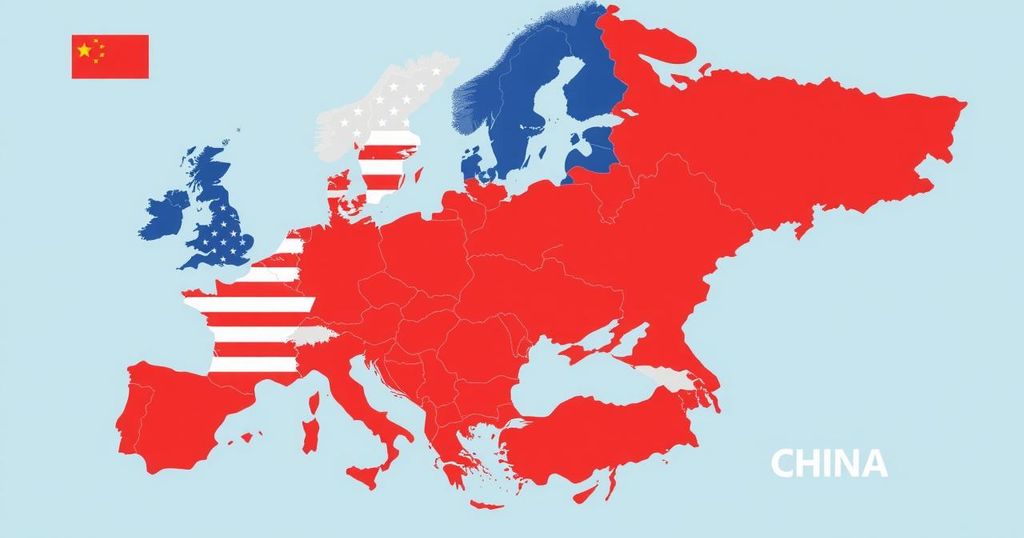Reevaluating Huntington: The Integration of Military and Political Dynamics
Samuel Huntington’s influential theories on civil-military relations, articulated in *The Soldier and the State*, promote a separation between military operations and political considerations, resulting in a lack of effectiveness in recent prolonged conflicts. This article argues for a reevaluation of Huntington’s principles, emphasizing the need for military leaders to engage politically and align their actions with broader political objectives for future success.
Samuel Huntington’s 1957 work, The Soldier and the State, has profoundly influenced military perspectives on civil-military relations for over fifty years. Controversial during its inception, his theories persist in shaping military officers’ outlooks today. This raises questions about the U.S. military’s effectiveness in long-term counterinsurgencies, where the political dimensions of warfare are often disregarded. Huntington advocated for “objective control,” suggesting that autonomy for the military would ensure that political leaders are not interfered with as long as military objectives were pursued. This notion, however, is criticized for fostering a disconnection between military actions and political strategies.
Huntington’s perspective can be juxtaposed with “subjective control,” wherein political leaders engage closely with military operations. His concept of objective control is based on the belief that military professionals should operate independently in combat scenarios. This belief leads to a troubling separation between warfare and its political underlying motivations. If military leaders genuinely comprehended the philosophies of military theorists like Clausewitz—whose premise posits war as a continuation of politics—they would recognize the inseparability of military endeavors from political ends.
Congressional oversight has diminished, enabling the military to self-define missions and problems through Huntington’s model. This autonomy perpetuates a cycle wherein the military formulates missions according to its expertise, often leading to a misalignment with actual global realities. Particularly, the U.S. Army often concentrates on large-scale ground combat, deeming other operational tasks as distractions, thus neglecting the broader spectrum of military requirements.
The challenges faced by the U.S. in prolonged conflicts since 1945 can be partially attributed to this singular focus on Huntington-esque objective control. Post-Vietnam reflections within the military reveal an institutional shift towards large-scale operations favoring conventional combat, as articulated in the 2022 Field Manual 3-0. However, the Army remained unprepared for the prolonged insurgencies that emerged in Iraq and Afghanistan, failing to align tactical actions with necessary political processes.
The entrenched Huntington paradigm has made political discussions distasteful within military circles, sidelining the importance of integrating military actions with political objectives. This detachment from political realities has contributed to the military’s shortcomings in achieving success in recent conflicts. The Army’s prioritization of conventional combat strategies neglects the lessons gleaned from modern warfare, perpetuating an unaccountable cycle that continues to impact effectiveness in the broader strategic landscape.
A re-evaluation of Huntington’s ideal is imperative, urging military officers to recognize their roles as political actors in a complex environment. This is not an indictment against civilian oversight but rather a call for proactive engagement in political discussions. Historical examples, such as George Washington’s presidency, illustrate how military leaders can effectively balance their professional roles with the political landscape while maintaining allegiance to civilian authority. The necessity of military leaders to abandon the bifurcation of military and political spheres is crucial if future conflicts are to be successfully addressed. Each branch of the armed forces grapples with this equilibrium, yet the Department of Defense remains predominantly aligned with Huntington’s principles, stifling meaningful collaboration between military and civilian sectors.
The focus of this article centers on the influence of Samuel Huntington’s theoretical framework regarding civil-military relations, particularly through his seminal text, *The Soldier and the State*. This work has shaped military doctrine and officers’ attitudes towards their roles in political discourse. It critiques the prevailing interpretation of Huntington’s ideas, positing that they misalign military operations with the necessary political considerations that underpin successful warfare. The historical failures of the U.S. in prolonged engagements, particularly in Iraq and Afghanistan, are analyzed in the context of Huntington’s influence on military operations and institutional beliefs about autonomy and professionalism.
In conclusion, the military’s reliance on Huntingtonian principles stifles the crucial integration of political considerations within military operations. By recognizing their intertwined nature, military leaders can avoid the pitfalls of history and navigate future conflicts effectively. A shift away from the rigid autonomy prescribed by Huntington is essential for fostering a military culture that embraces political engagement and understands its essential role in national security. The U.S. military must evolve to meet contemporary challenges while maintaining strong ties with civilian decision-makers for strategic coherence.
Original Source: smallwarsjournal.com








Post Comment